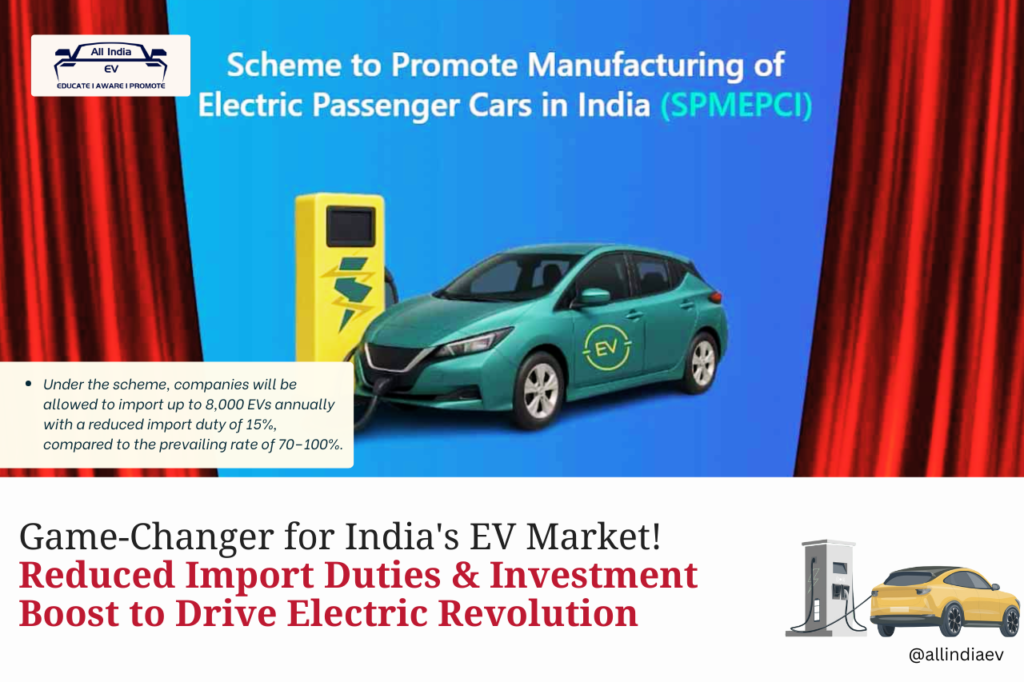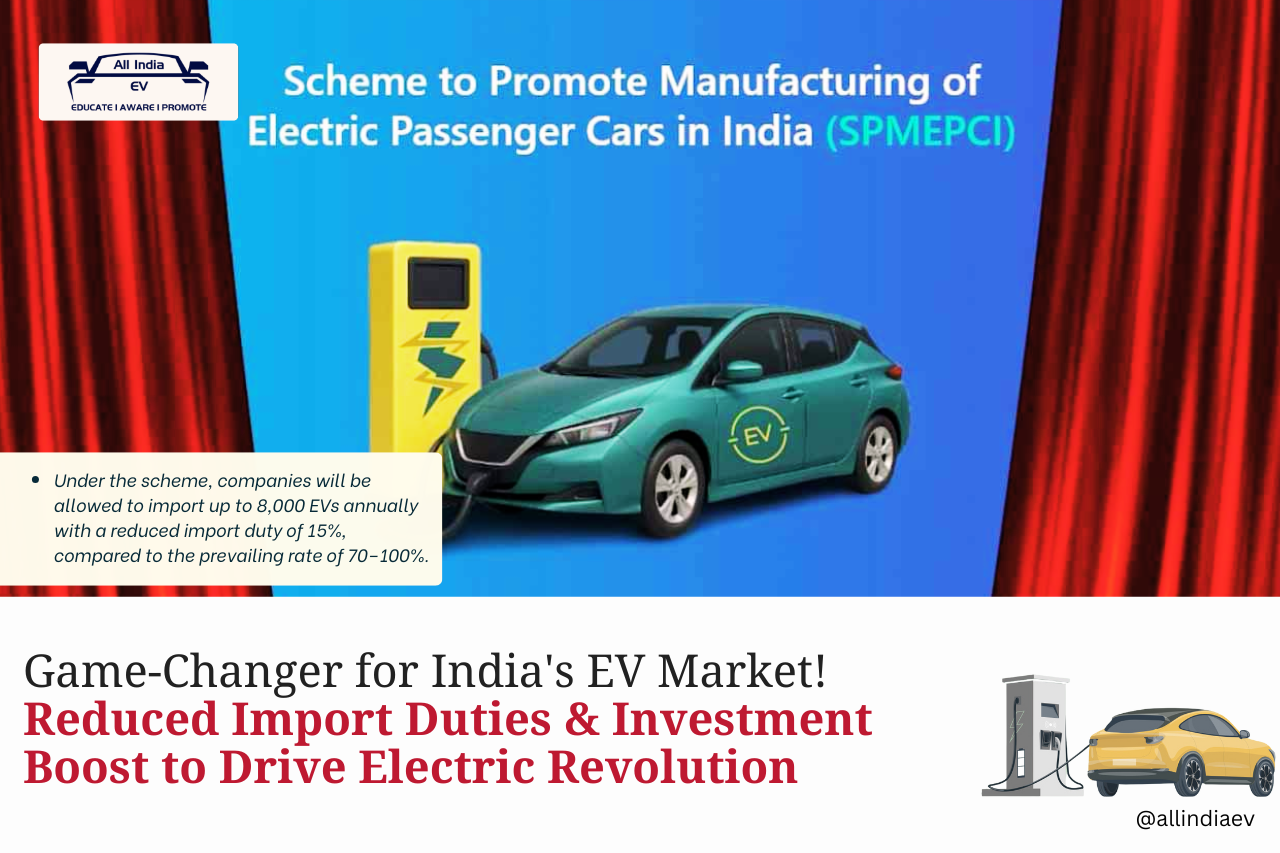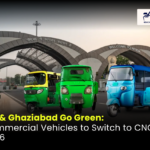
India’s SPMEPCI Scheme with 15% Import Duty & Local Investment Mandate Set to Attract Global EV Players and Boost Domestic Manufacturing
In a bid to accelerate electric vehicle (EV) adoption and attract foreign investment, the Indian government has launched the Scheme to Promote Manufacturing of Electric Passenger Cars in India (SPMEPCI). The policy is designed to encourage global automakers to set up local EV manufacturing operations by offering reduced import duties and a clear investment mandate.
15% Import Duty to Attract Global EV Brands
Under the scheme, new foreign entrants will be allowed to import up to 8,000 electric cars per year at a significantly reduced import duty of 15%, down from the existing 70–100% slab. In return, companies must invest a minimum of ₹4,150 crore (₹41.5 billion) in Indian EV manufacturing infrastructure within a specified timeline.
The initiative, spearheaded by the Ministry of Heavy Industries, is seen as part of India’s broader strategy to become a global hub for EV production, enhancing domestic capabilities while also offering Indian consumers access to the latest global electric models.
Mercedes-Benz India CEO Reacts
Speaking on the sidelines of a new model launch, Santosh Iyer, CEO & Managing Director of Mercedes-Benz India, praised the SPMEPCI scheme as a forward-looking and strategic step by the government.
However, Iyer clarified that the policy primarily benefits new EV entrants and does not directly apply to existing players like Mercedes-Benz, which has already made substantial investments in India.
“We have invested ₹3,000 crore in our Chakan plant near Pune and already locally assemble two electric models. For us, it’s business as usual,” Iyer said.
EV Market Outlook: Growth, Challenges & Supply Chain Stability
Iyer also offered insights into the current state of India’s EV market, predicting modest growth in 2025 following a phase of rapid expansion. He emphasized that while demand remains steady, the market may be entering a period of consolidation and cautious optimism.
On supply chain dynamics, particularly concerns around rare earth materials vital for EV production, Iyer noted that Mercedes-Benz has not faced disruptions in its Indian operations despite global tensions. “Our backend teams have managed the situation effectively,” he added.
Performance Cars and EV Strategy Coexist
Alongside its EV strategy, Mercedes-Benz India recently launched two new high-performance models—the AMG GT 63 4MATIC+ and the GT 63 PRO 4MATIC+ Coupé, priced at ₹3 crore and ₹3.65 crore respectively (ex-showroom). These models cater to a niche yet growing segment of performance car enthusiasts in India.
“They represent continuity in our product strategy and our commitment to all segments of the luxury car market,” Iyer stated.
Policy to Redefine Competition in India’s EV Sector
While legacy automakers like Mercedes-Benz may not be the direct beneficiaries of the SPMEPCI policy, the scheme is expected to reshape market dynamics by opening the door to new global players focused on EVs. This could lead to heightened competition, more options for Indian consumers, and a more robust ecosystem for clean mobility.As India continues to refine its EV roadmap, policies like SPMEPCI signal a clear message: India is open for EV business, and it’s serious about becoming a global manufacturing powerhouse.










